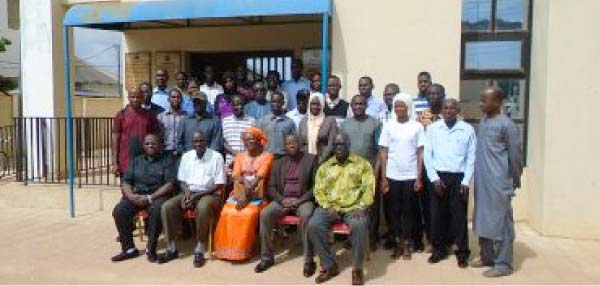
National
Accreditation and Quality Assurance Authority (NAQAA ), last Thursday validated
its 2020 Curriculum Needs Assessment which presents the finding of
comprehensive curriculum ends assessment for post-secondary education system, particularly that of TVET in The Gambia.
The
research was funded by UNESCO - within the framework of the UNESCO-KOLCA project in The Gambia with an overall
objective to contribute to the development of sustainable, affordable,
accessible, relevant and quality Technical, Vocational, Education and Training
(TVET).
The
project seeks to promote and support and
improve TVET system in The Gambia to
give young people a better chance of finding decent employment or to create
self- employment and lifelong learning
opportunities - to acquire skills relevant to laundry our market.
The
study is to establish a strong empirical evidence to support policy makers and
tertiary and higher education institutions in instituting curriculum reforms
that will reflect the needs of the labour market on enhanced socio-economic
development.
A
review of the Authority’s reports emanating from its 2019 quality audit check
of institutions indicated that there is no systemic approach to quality
assurance as a result of lacking of functioning internal quality assurance
structures in the institutions.
Gibril
Jaw, chief executive officer,
said to realise this vision, tertiary and higher education institutions should develop their internal quality assurance mechanism by putting in place the necessary
quality assessment tools and structures
to facilitate effective delivery of educational programmes.
“NAQAA
in collaboration with partners has developed effective external quality
assurance instruments to guide the operationalisation of the functions of the
Authority,” he said
He
assured that NAQAA will continue to work and partner with MOHERST, UNESCO and other relevant stakeholders in uplifting
Gambia’s tertiary and higher
education system through the provision of high-quality teaching, learning,
research and community service.
Ndeban Joof,
deputy project coordinator of UNESCO -KOLCA said the expected outcome of the project is the relevance of
the TVET system by improving the knowledge-based and capacity of TVET
stakeholders to develop evidence based TVET
policies.
He
said the project will strengthen the capacity of TVET institutions through
enhanced curricula, teacher capacity development and training as well as
upgrading infrastructure and equipment.


